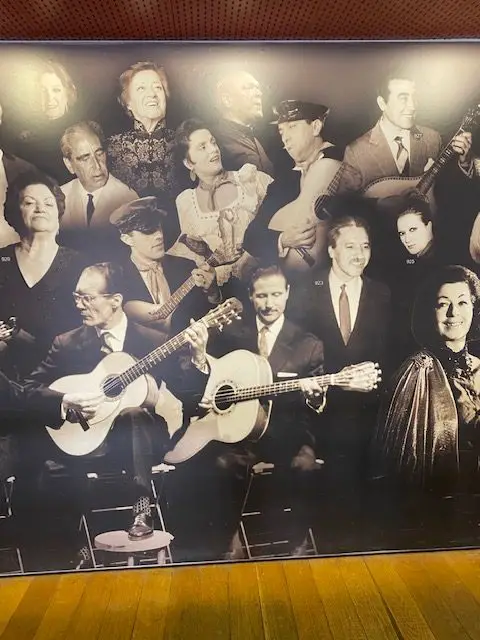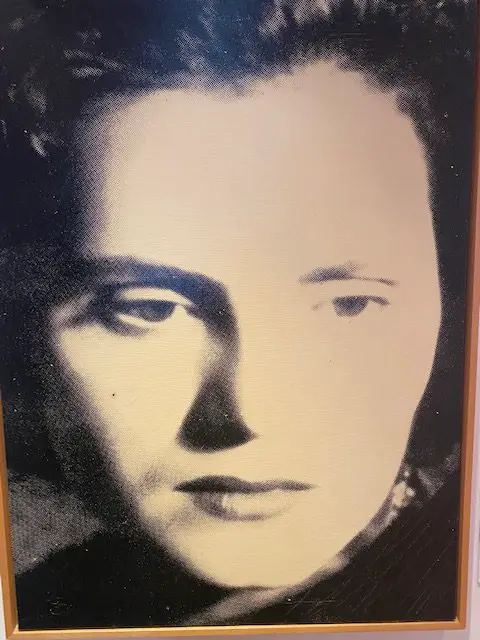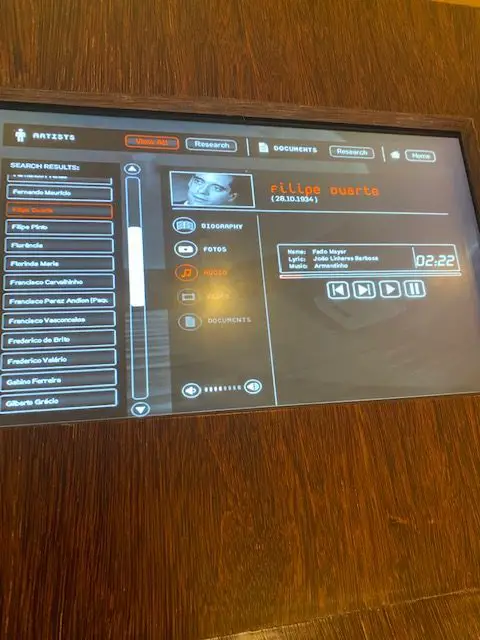If you are curious about the Portuguese tradition of Fado Music, Lisbon’s Fado Museum (in Portuguese – O Museo do Fado) should be one of your first stops. Here is everything you need to know.

Where is Lisbon’s Fado Museum?
The Lisbon Fado Museum is located at Largo do Chafariz do Dentro, 1. It is in the low part of the Alfama neighborhood, near the cruise terminal.
38.71138527086005, -9.127658905845776
Take bus 728, 735, 759, or 794
The closest metro stations are Santa Apolónia or Terreiro do Paço.
Parking is available at the Campo das Cebolas parking garage or the Cruise Terminal Parking.
When is the Lisbon Fado Museum open?
The Lisbon Fado Museum is open Tuesday – Sunday, 10 am – 6 pm
To see a list of museums and sites that are closed on Monday, see my article What’s open in Lisbon on Mondays?
Admission to Museu do Fado
Children up to 12 years old or admitted for free. Ages 13 to 25 pay 2.50. Adults are 5€. Ages 65 and up pay 4.30€
If you have a Lisboa Card, admission is 4€.
Official website: Museu do Fado
What is fado music?
Fado is a traditional genre of music that originated in Portugal, particularly in the cities of Lisbon and Coimbra.
It is often characterized by its melancholic and soulful melodies, as well as its heartfelt and emotive lyrics.

Fado, which means “fate” or “destiny” in Portuguese, usually has themes of longing, nostalgia, and saudade, a Portuguese word that conveys a deep and often bittersweet sense of longing or melancholy. This grew out of a time when Portuguese men would go to sea and leave their families at home.
Fado music is typically performed with a singer accompanied by one or more acoustic guitars, such as the Portuguese guitar (guitarra portuguesa) and the classical guitar. The Portuguese guitar, in particular, is a distinctive instrument that gives Fado its unique sound.
The lyrics of Fado songs often tell stories of love, loss, or the hardships of life, and they are typically delivered with a sense of emotional intensity and a feeling of longing.
There are different styles of Fado, with Lisbon Fado and Coimbra Fado being the most well-known. Lisbon Fado is typically associated with a more urban and cosmopolitan style, while Coimbra Fado has its roots in the university city of Coimbra and often features male singers and a more academic and refined style. Both styles, however, share the same underlying themes of saudade and a deep emotional connection with the past.
Why is Fado important?
Fado has a rich cultural heritage in Portugal and is considered a form of musical and poetic expression that captures the essence of Portuguese identity and culture. It has been recognized as part of the Intangible Cultural Heritage of Humanity by UNESCO. For more information on Fado Music, see my article Everything you need to know about fado music in Lisbon
What will you find at the Museu do Fado?
In addition to many instruments on display, Lisbon’s Fado Museum also has artwork by some of Portugal’s greatest artists, including Julio Pomar, Arnaldo Louro de Almeida, Rafael Bordalo Pinheiro, José Malhoa, and Leonel Moura.

My favorite thing at the Museu do Fado was spending time at the listening station. There are audio and video clips of every composer, fadista (fado singer), and many of the guitarists.

The Museu do Fado also has a gift shop where you can purchase gifts, albums, and books.
What else is near the Fado Museum?
- Santa Apolónia Train / Metro Station For more information, read my Santa Apolónia Train Station – What you need to know
- Museu Militar – This beautiful building holds one of the largest collections of artillery in the world. Check out my article Military Museum of Lisbon – Everything you need to know
- Lisbon Cruise Terminal
- Alfama Neighborhood – The Fado Museum is actually located in the flat part of the Alfama neighborhood. To learn more about the area, read my The Alfama District – A complete guide to Lisbon’s oldest neighborhood
I am not affiliated with any of the businesses mentioned in this article. Thank you for reading about Lisbon’s Fado Museum.